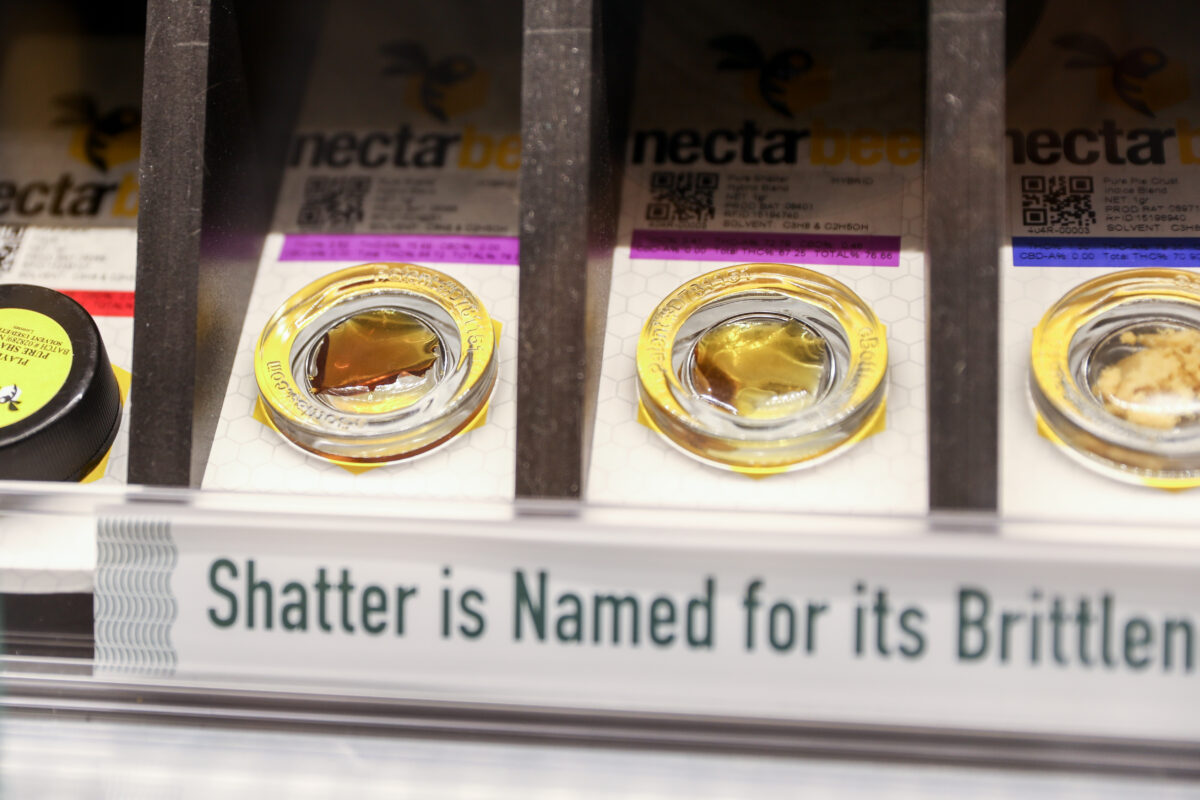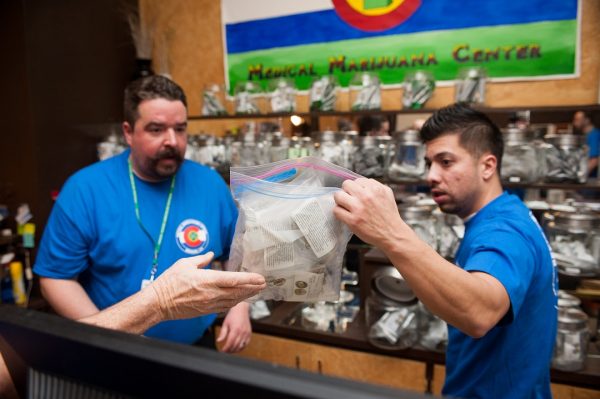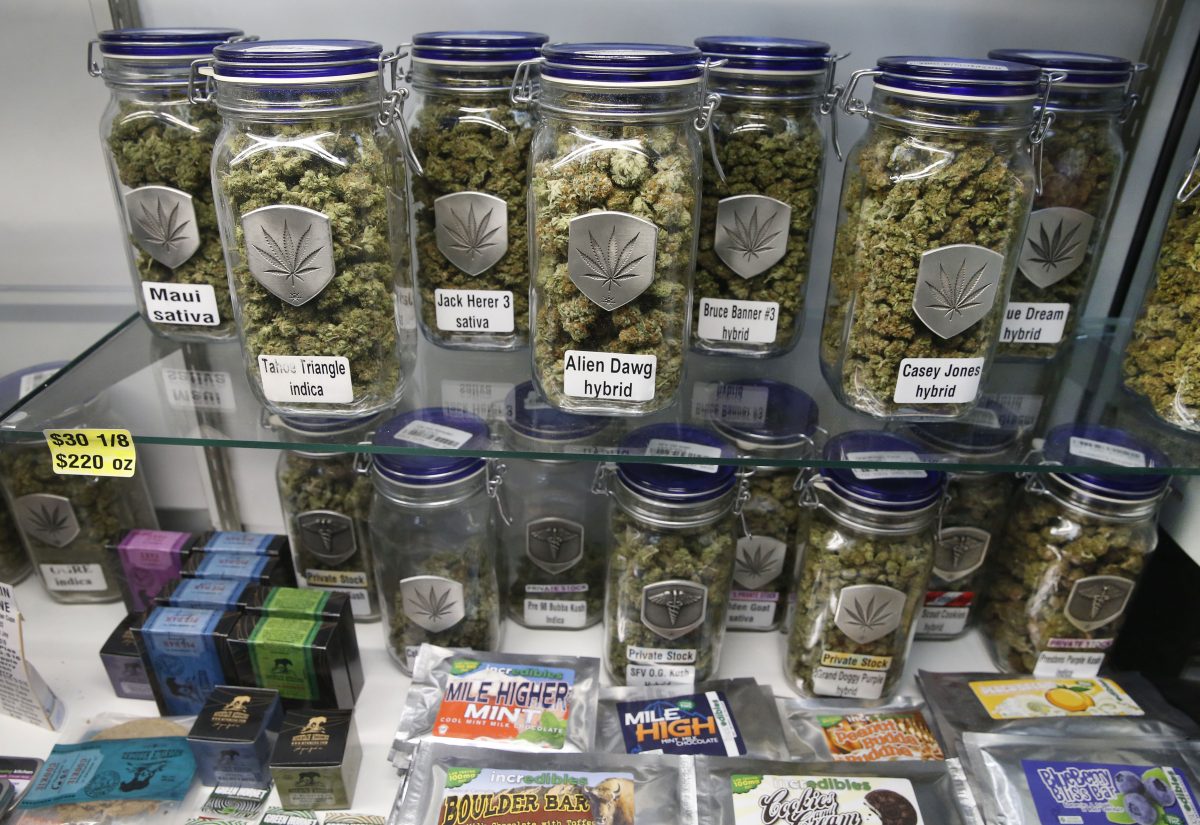Ben Cort, author of “Weed, Inc.: The Truth About the Pot Lobby, THC, and the Commercial Marijuana Industry,” continues to fight the multibillion-dollar cannabis industry that he says turned a once natural, relatively harmless plant into a highly addictive, psychosis-inducing narcotic.
Although the war on drugs and the campaign to criminalize marijuana was destructive, the unregulated cannabis industry run by corporations is more dangerous, said Cort.
“This pendulum swing in the other direction to where all things are permissible, and now all things are being driven by corporate interests, that’s not the solution either,” Cort said during a recent interview for EpochTV’s “American Thought Leaders” program.
Addiction to High Potency THC
The naturally occurring levels of THC in marijuana are now altered and distilled to create products with concentrated levels of THC.
THC is the chemical extracted from the cannabis plant that causes the “high” a person experiences. The amount of THC in a cannabis product is what makes it dangerous, said Cort. A cannabis plant can have as high as 40 percent THC, but the real danger comes in products that use the plant’s THC in concentrate form to produce edibles that have up to 99 percent THC.
These high-potency THC products, which have been commercialized in the last 15 years, are known to cause a mental health disease called psychosis in which a user becomes detached from reality, he said.
“In its most extreme forms, it looks like schizophrenia, which are seeing things and hearing things that aren’t there, audio and visual hallucinations,” said Cort.
In an interview with Rocky Mountain PBS in May 2022, a young man named Ethan Andrew explained his experience with the drug.
“I had what’s called cannabis-induced psychosis,” Andrew said. “It’s a break from reality after ingesting too much high-potency marijuana. I was having schizophrenia-like symptoms, like seeing things and hearing things [that] weren’t there. I was super paranoid that people were following me.”
Andrew started using high-potency cannabis daily to self-medicate for anxiety and depression for over a year before developing the psychosis, which lasted close to two months and was terrifying, he said.
According to a National Institutes of Health report published in 2020, “recent research suggests that smoking high-potency marijuana every day could increase the chances of developing psychosis by nearly five times compared to people who have never used marijuana.”
Another Profit-Driven Vice Industry
Cort said he began opposing the industry in 2012 when Colorado was in the process of passing Amendment 64, which allowed the Colorado marijuana industry to be established and to flourish.
Prior to his advocacy work against the cannabis industry, Cort said he was for the legalization of marijuana.
“I thought it was about social justice, freedom, more of a libertarian mindset. It would turn out that it was about the creation of another vice industry and another opportunity to tax,” said Cort.
Most states in the United States have decriminalized possession of small amounts of marijuana, including Colorado, which did it 10 years before Amendment 64 was passed.
Decriminalization is straightforward and easy, Cort said, because lawmakers can simply remove the penalties for possessions of small amounts of marijuana.
But Amendment 64 was not about decriminalization, he said.
“It really was just about the creation of a new business,” he said. “Commercialization takes real effort, and commercialization, make no mistake, is the path that this country has been on and continues to run down.”
“Two days ago, the largest [cannabis] company in the world, called Canopy, just announced their ascension onto the Canadian stock exchange and a hope to then be brought on to the U.S. stock exchange,” said Cort.
As cannabis is being broadly legalized, only large companies can afford the cost of the license to sell. Before the pandemic, a license to sell cannabis in California cost $5 million to $7 million, he said.
The cannabis industry is linked to Big Tobacco, Big Alcohol, and Big Pharma, said Cort. The industry is currently worth $30 billion but is projected to reach $70 billion in sales by 2030.
“The international market is certainly controlled by several big players. I can tell you that almost 85 percent of the dispensaries in Colorado are owned by 14 men,” said Cort.
New Cannabis Is Dangerous
“Addiction destroys lives, addiction guts families, it rots communities from the inside,” said Cort, but,
“Addiction to THC, I think in a lot of ways, can be more challenging for the individual,” Cort said.
When someone says they need help with an addiction to alcohol or heroin, people in society will rally around that person and validate the fact that the addiction is a problem, Cort said.
But if someone says they need help because they’re smoking too much weed, Cort said many people around them will laugh it off or insist that it’s impossible to be addicted to marijuana.
“It doesn’t enjoy the same sort of societal acceptance toward sobriety that these other things do, which makes it very challenging for the cannabis-dependent patient,” added Cort.
However, addiction to THC is a real issue and has very similar consequences as other addictive substances.
A Colorado woman named Laura Stack told Rocky Mountain PBS in March that when her son Johnny first started using marijuana, she dismissed it as a small thing because marijuana was common and relatively mild when she was young.
“I thought to myself, you know, it’s just weed, right? I used it. It didn’t hurt me. I had no idea how wrong I was,” Stack said. “It’s the dirty little secret of the marijuana industry that these high potency products can trigger psychosis in youth.”
Stack’s son died when he fell from a parking garage, which was ruled a suicide induced by high potency THC product.
The cannabis industry exploded when legalization met commercialization, said Cort, allowing the industry to go unregulated and to produce higher and higher THC-concentrated products, legally and for profit.
“We gave this industry absolute free rein with no guardrails at all,” said Cort. “The stronger it is, the higher the rates of addiction, and boy did they take advantage of that.”
“Never in this country have we appropriately regulated a vice substance, and the idea that we would do it on this one, with less infrastructure, no FDA involvement, always made me scratch my head,” Cort added.

Corrupt Regulation System
Although there are written regulations for the cannabis industry in Colorado, there is virtually no enforcement of the rules, said Cort.
In addition, there are dangerous pesticides, growth accelerators, and other chemicals found in cannabis products, which have been allowed to go unchecked because of the lack of regulatory oversight on the production of these high-potency products, he said.
“There are pesticides that we find regularly inside of cannabis plants that are not safe for topical animal use, and this is being inhaled by human beings,” said Cort. In order to improve safety for consumers, Cort said there need to be multiple testing sites across the country.
Cort said although there are a great number of employees in Colorado’s Marijuana Enforcement Division (MED), most do very little to enforce regulations because many of them transition into the commercial cannabis industry after working in the enforcement division.
“The amount of nepotism that has gone from the Marijuana Enforcement Division into the industry is enough to make absolutely anybody shake their heads. Marijuana Enforcement Division is well-funded. Marijuana Enforcement Division sits on their hands because they want to make friends with the people inside of the industry,” said Cort.
Shannon Gray, MED’s communication specialist, told The Epoch Times that any state licensing authority and any MED employee is prohibited from working for or getting money from the marijuana industry for six months following their employment with MED.

Corporations Worse Than Black Market
The cannabis lobbyists stopped Colorado House Bill 1317 from including a cap on THC potency because “the lower the potency, the lower the addiction rates, so they had no interest in that House Bill 1317,” said Cort.
The industry also tried to stop warning labels from being placed on products made with THC concentrates because the industry claimed it can’t be proven that these products are unsafe, said Cort. But THC concentrate is a high-potency, crystal-looking, extremely refined byproduct of the cannabis plant, and the recommended “serving size” is the amount resembling half a grain of rice, added Cort.

“They have that printed on the sheet. That’s how you’re supposed to tell, and they also have the number for the National Suicide Hotline, as well as the poison control in Colorado,” said Cort.
In fact, the laws that are written to legalize marijuana are authored by the same industry people who work in organizations like the Drug Policy Alliance and the Marijuana Policy Project, Cort said.
“They’re all written by the same people,” he said.
Cannabis lobbyists who work for the industry argue that if cannabis products are highly regulated, they will be driven into the unregulated black market, but Cort argues that the cannabis industry is more dangerous than the black market because they have little oversight, huge amounts of money to advertise, and promote usage via coupons and tracking apps
“My answer to that is simple: your market is unregulated. You have chemicals, growth accelerators, pesticides, butane, propane, isopropyl alcohol that’s being found in your products every day of every week. Your product’s not safe,” said Cort. “And would I rather it in the black market? You better believe I would, because I’ve never seen a drug dealer run a two-for-one special or have coupons.”

 The Best Legal Delta 9 Near You in Park Forest North
The Best Legal Delta 9 Near You in Park Forest North 


Be the first to comment